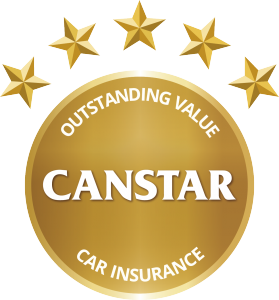Looking for the best comprehensive car insurance in New Zealand? Here’s an overview of the car insurers reviewed in Canstar’s Star Ratings.
The display order does not reflect any ranking or rating by Canstar.
| Provider | Canstar Rating | Cover Includes |
 |
Click Here for Star Ratings |
|
 |
Car Insurer of the Year |
|
  |
|
|
| Outstanding Value Award Winner |
|
|
|
||
|
||
| Outstanding Value Award Winner |
|
|
| Click Here for Star Ratings |
|
|
| Click Here for Star Ratings |
|
|
| Click Here for Star Ratings |
|
|
 |
Click Here for Star Ratings |
|
 |
Click Here for Star Ratings |
|
| Click Here for Star Ratings |
|
|
| Click Here for Star Ratings |
|
|
| Click Here for Star Ratings |
|
This information is not an endorsement by Canstar of any specific insurance provider or product. Information correct as of 21/05/25. For full details see insurers’ car insurance policies.
By clicking on a More Details or Go To Site button, you may be taken to either a product provider website or a Canstar NZ brand page. Canstar may earn a fee for referrals from its website tables, and from sponsorship (advertising) of certain products. Payment of sponsorship fees does not influence the star rating that Canstar awards to a sponsored product. Fees payable by product providers for referrals and sponsorship may vary between providers, website position, and revenue model. Sponsorship fees may be higher than referral fees. Sponsored products are clearly disclosed as such on website pages. They may appear in a number of areas of the website such as in comparison tables, on hub pages and in articles. Sponsored products may be displayed in a fixed position in a table, regardless of the product’s rating, price or other attributes. The table position of a sponsored product does not indicate any ranking, rating or endorsement by Canstar. See How We Get Paid for further information.
Any advice on this page is general and has not taken into account your objectives, financial situation or needs. Consider whether this general financial advice is right for your personal circumstances. You may need financial advice from a qualified adviser. Canstar is not providing a recommendation for your individual circumstances. See our Detailed Disclosure.

Car insurance gives drivers some protection from financial loss if their car is involved in an accident, is stolen, is damaged in a weather event or another risk included on your policy. If your car is damaged or written off, or you damage someone else’s vehicle in an accident, the cost to you could be significant, and a car insurance policy is designed to cover the majority of that cost.
Comprehensive car insurance is the highest level of car insurance coverage. It provides a level of financial cover for damage to other people’s cars and property in an accident, damage to your own vehicle caused by fire or theft, and accidental damage to your own vehicle, regardless of who caused the damage. It may also provide additional types of cover, such as damage to your car from storms or vandalism, depending on the insurer and policy you choose.
A comprehensive car insurance policy may also let you choose between market value and agreed value for your policy, meaning you could get a say in how much you’ll be paid in the event that your car is stolen or written off, depending on the policy. However, your choice may affect your premiums.
Choosing the policy that’s right for you could depend in part on what you can comfortably afford, so it may be worth considering the type of cover that suits your needs and your budget. For example, would you prefer the high level cover generally offered by a comprehensive policy, or would a lower level of cover be enough?
Car insurance covers policyholders for damage caused or costs incurred by unforeseen accidents or events involving the car they insure. The exact risks that are covered will depend on the level of cover that you have. For example, third party cover generally only covers costs if you damage someone else’s property in an accident, whereas comprehensive car insurance provides protection for a more extensive range of risks. Depending on the insurer and policy you choose, comprehensive car insurance could cover:
Although policies offered by different car insurers will vary, the types of car insurance can be boiled down to three levels of cover.
The most basic type of insurance, it covers all or part of your legal liability if you harm another person or damage their property. You will not be covered for damage to your own vehicle.
This is the same kind of insurance as standard third party, with additional cover for fire damage and theft. Some insurance companies will have policies that also cover damage caused by natural disasters.
This is the highest level of car insurance, covering you for almost anything that could happen on the road, or by the side of it. If you damage yours or another person’s property, you won’t be required to pay the full amount for repairs – only the pre-agreed excess amount.
Canstar’s Star Ratings are one factor you could use to help you compare comprehensive car insurance policies before getting a quote online. Our Ratings use a sophisticated and unique methodology that compares both price and features across products on our database. You can compare policies based on their Star Ratings using our above tables.
In addition, these are some of the other factors you may want to take into account when comparing car insurance policies:
The best car insurance policy for you will depend on your circumstances and the level of cover you are looking for. In assessing policies, you may like to ask yourself questions such as:
When you’re shopping around for cover, you may simply want to get the cheapest car insurance policy you can find. It can be important to also keep in mind the level of protection you’re getting for your money. For example, with optional forms of cover, third party property may be the cheapest car insurance in most situations, but it won’t cover you if your car is damaged in an accident or stolen.
Even if you decide on a higher level of cover, like comprehensive, there may be ways to keep the cost down. Some insurers offer discounts if you pay your premium annually or take out the policy online as opposed to over the phone, or you could opt to pay a higher excess if you need to make a claim. It can also help to shop around and compare quotes online from a number of insurers. These techniques may help you get value for your money, while still getting a higher level of cover than the cheapest car insurance might offer.
 About the author of this page
About the author of this pageThis report was written by Canstar’s Editor, Bruce Pitchers. Bruce has three decades’ experience as a journalist and has worked for major media companies in the UK and Australasia, including ACP, Bauer Media Group, Fairfax, Pacific Magazines, News Corp and TVNZ. Prior to Canstar, he worked as a freelancer, including for The Australian Financial Review, the NZ Financial Markets Authority, and for real estate companies on both sides of the Tasman.
Car insurance gives drivers some protection from financial loss if their car is involved in an accident, is stolen, is damaged in a weather event or another risk included on your policy. If your car is damaged or written off, or you damage someone else’s vehicle in an accident, the cost to you could be significant, and a car insurance policy is designed to cover the majority of that cost.
Comprehensive car insurance is the highest level of car insurance coverage. It provides a level of financial cover for damage to other people’s cars and property in an accident, damage to your own vehicle caused by fire or theft, and accidental damage to your own vehicle, regardless of who caused the damage. It may also provide additional types of cover, such as damage to your car from storms or vandalism, depending on the insurer and policy you choose.
A comprehensive car insurance policy may also let you choose between market value and agreed value for your policy, meaning you could get a say in how much you’ll be paid in the event that your car is stolen or written off, depending on the policy. However, your choice may affect your premiums.
Choosing the policy that’s right for you could depend in part on what you can comfortably afford, so it may be worth considering the type of cover that suits your needs and your budget. For example, would you prefer the high level cover generally offered by a comprehensive policy, or would a lower level of cover be enough?
Car insurance covers policyholders for damage caused or costs incurred by unforeseen accidents or events involving the car they insure. The exact risks that are covered will depend on the level of cover that you have. For example, third party cover generally only covers costs if you damage someone else’s property in an accident, whereas comprehensive car insurance provides protection for a more extensive range of risks. Depending on the insurer and policy you choose, comprehensive car insurance could cover:
Canstar’s Star Ratings are one factor you could use to help you compare comprehensive car insurance policies before getting a quote online. Our Ratings use a sophisticated and unique methodology that compares both price and features across products on our database. You can compare policies based on their Star Ratings using our above tables.
In addition, these are some of the other factors you may want to take into account when comparing car insurance policies:
The best car insurance policy for you will depend on your circumstances and the level of cover you are looking for. In assessing policies, you may like to ask yourself questions such as:
When you’re shopping around for cover, you may simply want to get the cheapest car insurance policy you can find. It can be important to also keep in mind the level of protection you’re getting for your money. For example, with optional forms of cover, third party property may be the cheapest car insurance in most situations, but it won’t cover you if your car is damaged in an accident or stolen.
Even if you decide on a higher level of cover, like comprehensive, there may be ways to keep the cost down. Some insurers offer discounts if you pay your premium annually or take out the policy online as opposed to over the phone, or you could opt to pay a higher excess if you need to make a claim. It can also help to shop around and compare quotes online from a number of insurers. These techniques may help you get value for your money, while still getting a higher level of cover than the cheapest car insurance might offer.
Third-party cover should be compulsory for all drivers: 55%
Pay insurance in instalments to manage costs: 45%
Bundle home and car insurance for a discount: 43%
Concern premiums will rise due to climate change: 26%
Actively seek out cheaper car insurance: 24%
Have reduced sum insured to reduce premiums: 13%
Comprehensive: 87%
Third party, fire & theft: 13%
Third party: 7%
Please note that these are a general explanation of the meaning of terms used in relation to car insurance. Your insurance provider may use different wording and you should read the terms and conditions of your insurance policy carefully to understand what you are and are not covered for. Refer to the product disclosure statement (PDS) from your provider.
Account-keeping fee / Ongoing fee: A monthly account-keeping fee that is charged by the lender to cover the administration cost of maintaining your policy. Alternatively, you may be charged an annual fee rather than an ongoing account-keeping fee.
Anti-lock braking system (ABS): A safety system that stops the wheels from locking up when you brake, which decreases the risk of skidding. Also known as an anti-skid brake system.
Agreed value: The sum for which your car is insured, which has been fixed by agreement between the insurer and the car owner. The option for your sum insured is to insure your car for the market value (see ‘Market value’ below).
Comprehensive: The highest level of insurance policy, which covers your car for damage to other people, damage to the property of others, damage to your own car if it is damaged or lost because of fire or theft, and accidental damage to your own car, regardless of who caused the damage. Comprehensive car insurance also has a range of optional extras, including complimentary replacement vehicles while you can’t drive your own car, and no-excess windscreen replacement if you have a crash.
Compulsory Third Party (CTP): A compulsory insurance policy that covers you if you injure or kill someone in a motor vehicle accident. The specific conditions on this type of insurance are different from state to state, but it is compulsory to hold CTP in order to register your vehicle.
Excess: The excess is an amount that you pay towards the cost of your claim. Different excesses might apply to different types of claim, so you should check your policy for details. You may be able to pay a lower premium if you have a higher excess, but you need to be sure that you could afford to pay the excess unexpectedly in an emergency.
Exclusions: Anything that is not covered by your policy. Exclusions may vary between insurance providers, but find out the common exclusions here.
Forced entry: Illegal entry into your car which includes illegally using keys or picking locks. It does not include entering your car through an unlocked door, window, or skylight.
Inclusions: Anything that is covered by your policy. When a particular event is listed as being included in your policy, the insurer will cover the whole expense or a listed percentage of the cost involved.
Market value: What your car would be worth on the market, or it would cost to replace your vehicle with one of the same make, model, age, and condition as your vehicle was in before the loss or damage. This is one option for your sum insured; the other option is to insure your car for an agreed amount (see ‘Agreed value’ above).
No claim bonus: A discount on your premium for drivers who have not made any claims so far on their insurance. Some insurance providers have a ‘protected no claim bonus option’, where they will let you keep your no claim bonus after you make your first claim in any one period of insurance, under certain conditions.
Nominated driver: When you sign up for insurance, you must advise the insurer who will be listed on your policy as being allowed to drive your car (usually yourself and someone else). These people are the nominated drivers. Other people who drive your car but are not nominated drivers would be required to pay an additional excess if they were in an accident while driving your car.
Premium: The premium is the amount you pay for the cover your insurance policy provides, and may be paid once annually or more frequently (e.g. monthly, fortnightly). Your premium must be paid on time for your car to remain covered.
Third Party Property: This is an insurance policy that covers the cost to repair damage caused by your car to other people’s property. It will also cover your legal costs if they sue you over that damage.
Third Party, Fire and Theft: This is an insurance policy that covers damage to the property of others, and some limited cover for your own car if it is damaged or lost because of fire or theft.